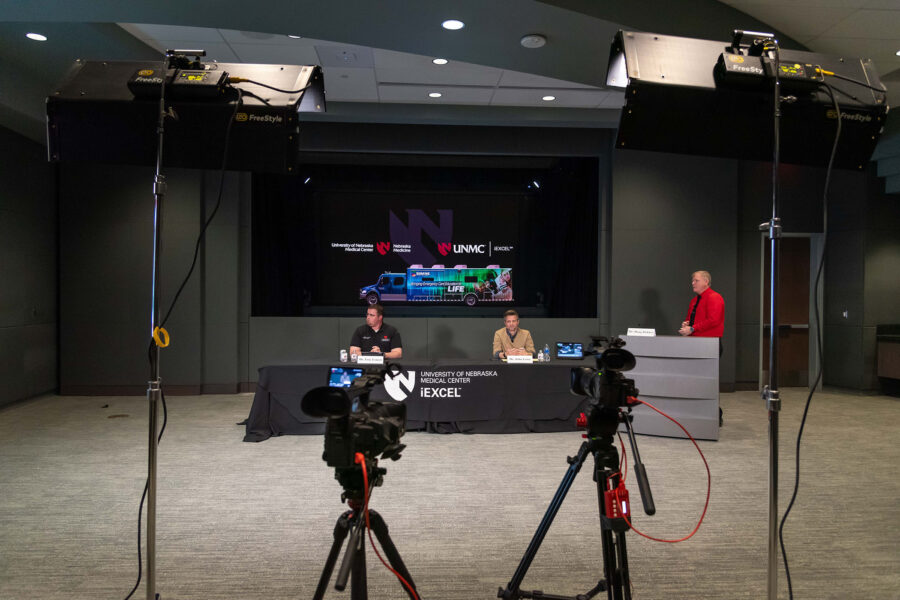Building upon the successes of Simulation in Motion-Nebraska, as well as lessons learned during the pandemic, UNMC’s SIM-NE program is evolving into a hybrid training model that blends mobile on-site training with live virtual outreach events.
The new model will use the technologies in the Davis Global Center and ensure that UNMC, iEXCEL and SIM-NE’s expertise in emergency response and disaster preparedness can reach a broader audience. The goal is to provide emergency responders, as well as UNMCs rural training sites, with high-quality training, especially during times of need for timely access to up-to-date knowledge and skills.
This hybrid model will offer a blend of hands-on simulation and live virtual and remote access to training, as well as accessibility to UNMC subject matter experts, especially during times of emergency response such as pandemics or natural disasters.
“This approach also gives iEXCEL the opportunity to investigate new funding sources, which would include application for grants and contracts that may sustain the mobile training program moving forward,” said Pamela Boyers, PhD, associate vice chancellor of clinical simulation and iEXCEL.
Earlier this year, the SIM-NE team celebrated a milestone with a training event in Hayes County. The March 23 event in the village of Hayes Center marked the completion of SIM-NE training in 93 of 93 counties in Nebraska since the SIM-NE program began in August 2017.
Since its August 2017 start, SIM-NE has:
- Provided 686 training events across Nebraska, reaching 10,486 health care professionals and Nebraska agencies.
- Offered 89 online training opportunities, resulting in 4,700-plus learners attending across the United States.
- Expanded its training from the primary focus of rural emergency medical services and critical access hospital workers to also include law enforcement, pre-licensure, K-12 education emergency response teams, industrial quick response teams and the military.
As part of UNMC’s iEXCEL (Interprofessional Experiential Center for Enduring Learning) program, SIM-NE has helped revolutionize remote health care education and training. SIM-NE staff provide state-of-the-art training to enhance lifesaving skills at the request of emergency medical service organizations and health professionals at hospitals in rural communities across the state.
During the pandemic, SIM-NE was one of the first in the state to provide live, online, just-in-time training to professionals in emergency medical services and critical access hospitals.
